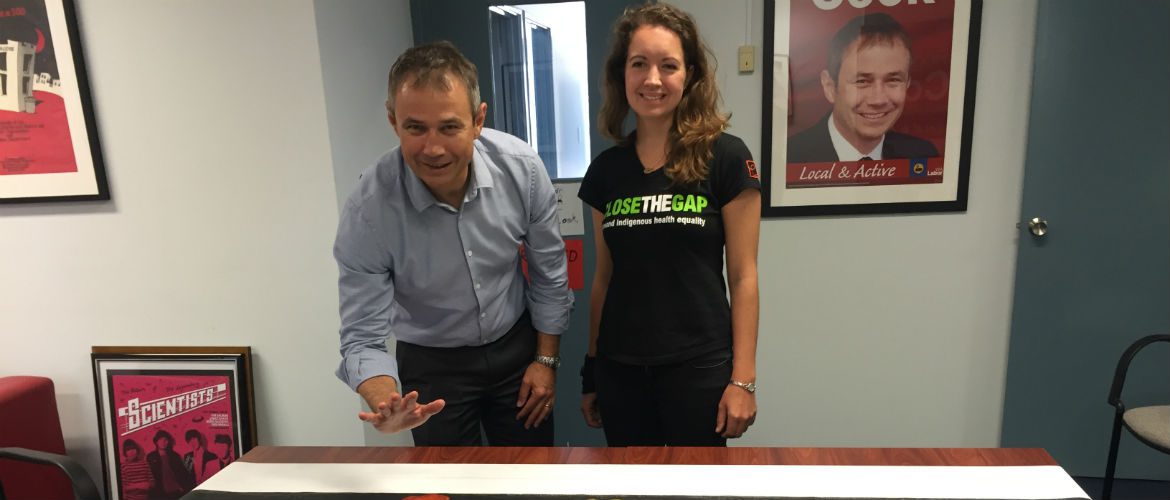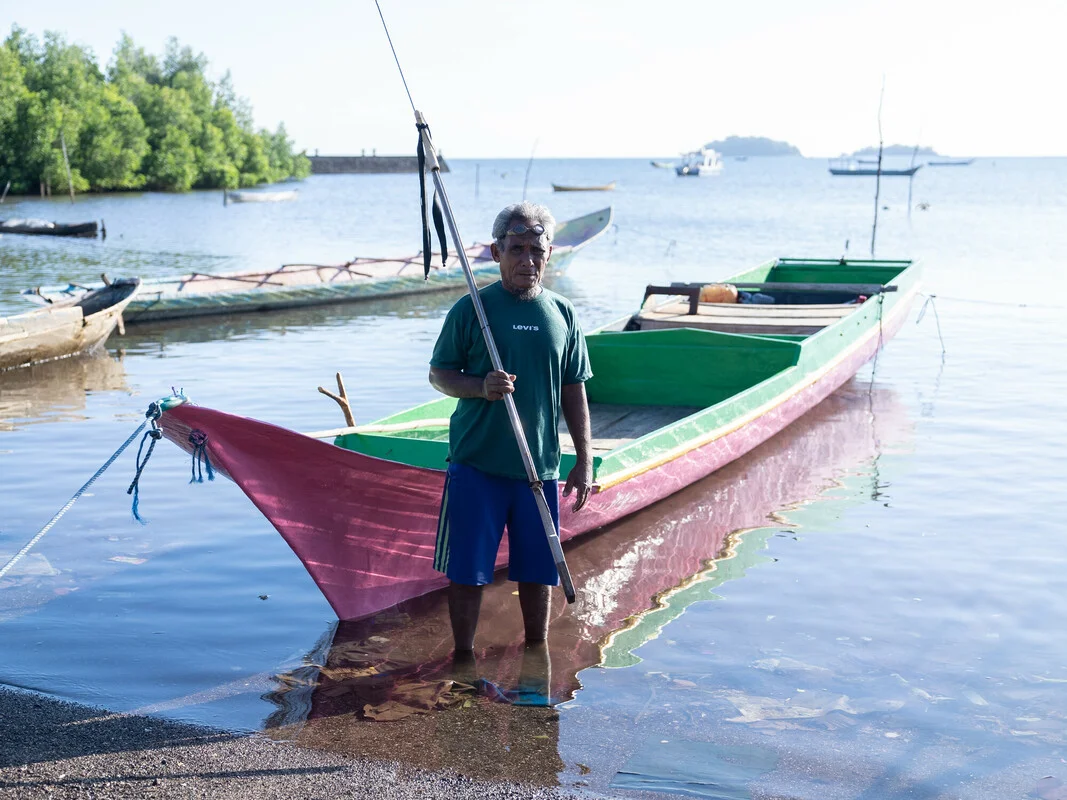Jenny has been volunteering for Oxfam’s Close the Gap campaign since November 2015. As we lead up to National Close the Gap Day on 17 March, Jenny shares why she’s volunteering to promote Indigenous health equality and why we should work together to Close the Gap.
I always wanted to work in international development. Now, after eight great years working for the British Civil Service in their Refugee and Asylum department and learning a lot of really useful business, people and project skills, I am now able to work on a campaign in a developed country which covers a developing country’s problem — which is about social integration, cultural understanding and respect and a poverty trap. The project is Close the Gap.
The Close the Gap (CTG) campaign’s goal is to raise the health and life expectancy of Aboriginal and Torres Strait Islander people to that of the non-Indigenous population in Australia within a generation: to close the health gap by 2030. To do this, we lobby the government to ask them to continue to invest and focus on closing the health gap. National Close The Gap Day (Thursday 17 March) provides a focus to the campaign, and an opportunity for all elements of the Australian population to come together and stand witness to the health gap and the need for it to be reduced.
I’m working on promoting the day and trying to get as many groups as possible across the spectrum of society to host an event on the 17 March. This involves speaking with corporates, NGOs, youth groups, sporting teams, community groups, health providers and doctor surgeries to ask them to host their own event and become an advocate for the campaign to encourage others to also run events.
An event might be a coffee morning where the Close the Gap video is played, or it could be a doctor’s surgery running a diabetes check clinic (diabetes is much more prevalent in Aboriginal and Torres Islander Peoples than non-Indigenous people), or even a fun run and fete as the Primary Health Service in Darwin is organising this year. It is through little steps that a big change can happen. The steps are not all measurable, but over the course of time they will certainly have a positive impact on Closing the Gap.
If anyone reading this thinks they could host or run an event in their social group, workplace or community then please do hop online to get some ideas of what you could do. With every event registered, Oxfam’s power to persuade politician’s increases. If you’re not sure about running an event, but agree with the campaign, then please sign the pledge to Close the Gap.
I often find myself thinking ‘it’s too big a challenge’ or ‘where could the world possibly start’ when actually, with all things that seem overwhelming, you just start at the bottom and work up. I like the way that Oxfam identifies its six key goals, and alongside that recognises how they will behave in order to reach those aims and they’re not shy of working with others to get there. The vision is defined, the strategy is clear. Oxfam, to me, make the impossible seem more possible and the aim of ending world poverty feel achievable.
I get many things out of volunteering, but three come to mind:
- Knowledge: about the campaign and from my wonderful peers who are sharing their lobbying knowledge (Paddy) and campaign knowledge (Tom).
- Experience: hands on practical experience of lobbying — speaking with politicians, increasing political pressure and encouraging others to join in. I’ve also rediscovered my playschool painting banner skills!
- Purpose: being a part of something big is wonderful, and in particular, it’s something big which I fundamentally agree with.
I think it’s hard to maintain focus on a long term goal when it can appear so impossible (closing the gap, ending poverty, reducing the wealth gap) however, through little steps big things can be achieved and it’s a pleasure to be able to know that some of my time is contributing to that hope that we can provide to people less well off – that change can happen and things will improve, given time.
Humanity has achieved so much already when we look at history. I very much look forward to being able to work with Oxfam and other INGOs over the coming years to continue that development and progress.
Join Jenny in taking small and big steps towards closing the gap on Indigenous health inequality. Register for National Close the Gap Day.



